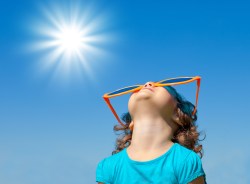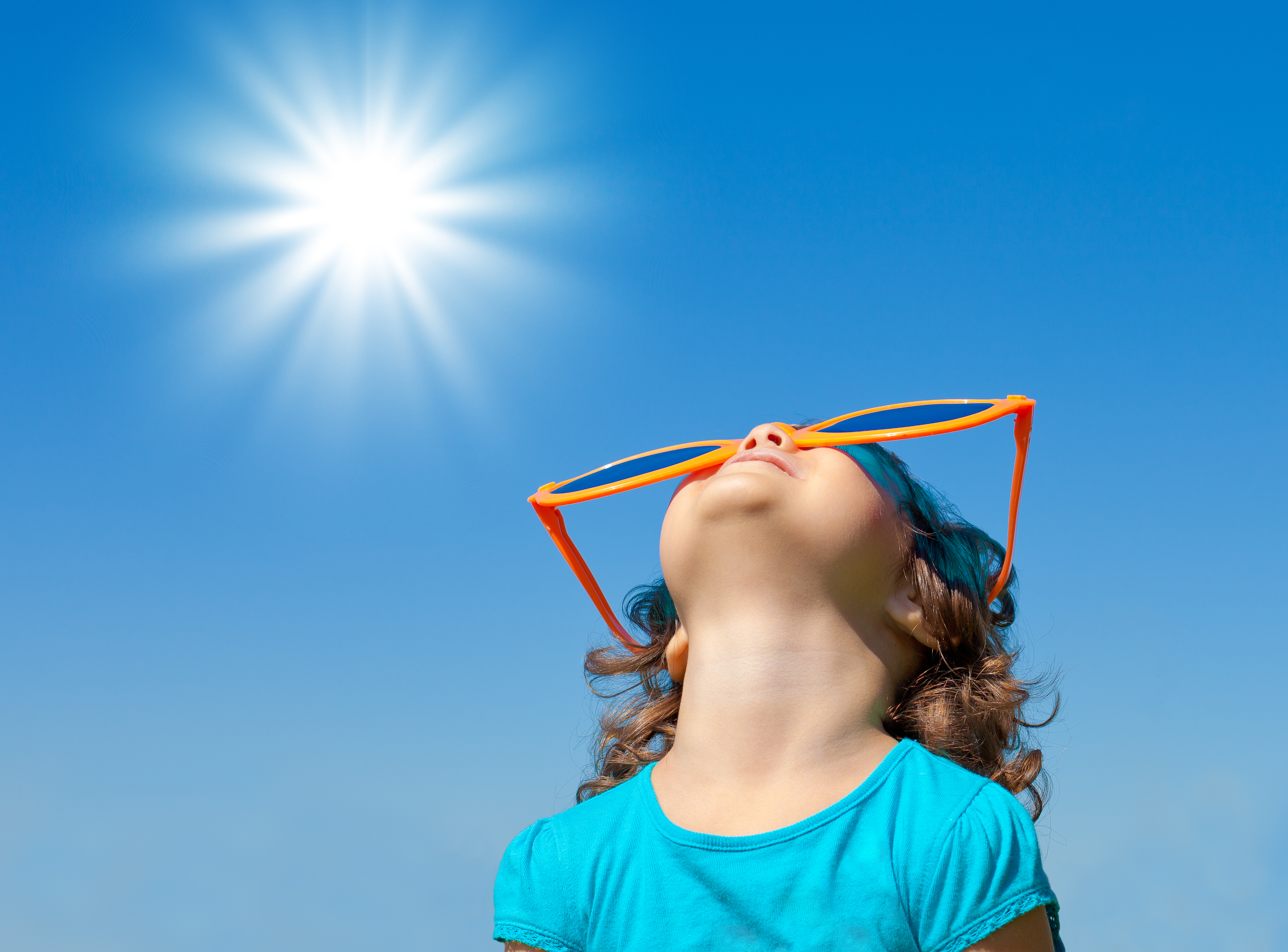Send your question to Umbra!
Q. Dearest Umbra,
With summer nearing and the weather heating up, I’m wondering about sunscreens. Is there any such thing as a strong, full-spectrum sunscreen that isn’t hella toxic? Please don’t tell me to sit under an umbrella and wear long-sleeved shirts all summer.
Emma
North Charleston, S.C.

A. Dearest Emma,
It just so happens that Grist is exploring the theme “Heat” this month, so your question fits right in. How are we to protect ourselves from the searing rays of the summer sun? Do the products meant to protect us actually do us harm, as you suggest? This is one hot topic.
Before we dive in, let me remind you: I’m not a doctor, and you should talk to yours if you have health questions. However, I do hold an Adv. D. — Doctor of Advice-ology — which allows me to freely dispense opinions about the dubious nature of the “personal care products” we use.
You probably know that sunscreen helps prevent exposure to two important types of sunlight: UVB rays, which burn our skin and can cause cancer, and UVA rays, which penetrate our skin, accelerate the aging process, and can also cause cancer. Quite the dynamic duo.
But sunscreen is not the be-all and end-all of sun protection.
In fact, sunscreen is more like the fad diet of sun protection. You know how your neighbor swears that eating only steak for six months will give him the figure he’s always dreamed of? That’s how some people are about sunscreen: If I buy SPF 110 and slather it on, the thinking goes, I can lie in the sun for 10 hours and everything will be hunky-dory.
In fact, just as we need a balanced diet to maintain our health, we need a balanced approach to the sun. Though you pre-scolded me about umbrellas and long sleeves, they are an important part of your balanced sun diet. The best defense against the sun is still (drumroll, please) avoiding the sun. Especially during the middle of the day, when the rays are most intense. Last time we covered this topic, my favorite comment came from one Walter Jeffries: “Cover up and stay out of the sun during the midday. I farm and I can do it. So can you.”
When we must expose our skin, we want a “broad-spectrum” product that defends against UVA and UVB without being, as you say, hella toxic. Might I suggest you consult the Environmental Working Group’s hot-off-the-presses 2013 Guide to Safer Sunscreens? There you can look up your current brand to see how it ranks, peruse a list of the least-toxic brands, and learn many other fascinating things.
I talked with Sonya Lunder, a senior analyst at EWG, who offered some important pointers:
- Don’t count on SPF. Higher SPF doesn’t automatically mean better protection, since SPF measures only protection against UVB rays. In fact, says Lunder, this number can lead to a false sense of security, leading people to spend more time baking without getting the warning signal of a burn. A rating between 15 and 50 should be sufficient if you follow the directions—and be sure your brand offers UVA protection.
- Read labels carefully: A few common ingredients in sunscreen raise some eyebrows, says Lunder, including oxybenzone, which lab studies suggest is a hormone disruptor and potential carcinogen, and retinyl palmitate, a form of Vitamin A that has also been linked to cancer in lab animals. To that I would add our old friend “fragrance,” a pleasant word for an unpleasant and undisclosed chemical cocktail.
The products that are best at blocking UVA rays (and worst at causing cancer in mice) tend to be mineral sunblocks, usually made with zinc oxide or titanium dioxide. These create a protective layer on your skin rather than melting into it. Of course, some perform better than others: Who could forget the time we subjected a Grist reporter’s belly to a side-by-side sunscreen test? Ouch.
Lest you think I’m suggesting that you huddle in the eaves from dawn to dusk, may I remind you that sunlight is also good for us in many ways. It helps our bodies make Vitamin D, which strengthens our immune system; it is also a mood-booster and has been linked by at least one study to lower blood pressure.
Go forth and enjoy your summer, Emma. Just remember to stick to a balanced diet: a little of the right kind of sunscreen, a little covering up and/or staying out of the sun, a little common sense. In other words, read your labels carefully, wear a hat, and go inside for a popsicle at noon.
Brimly,
Umbra



